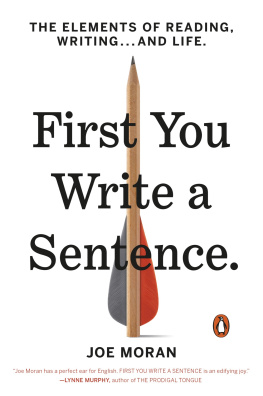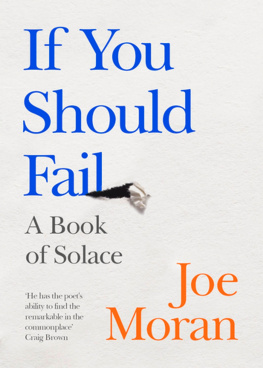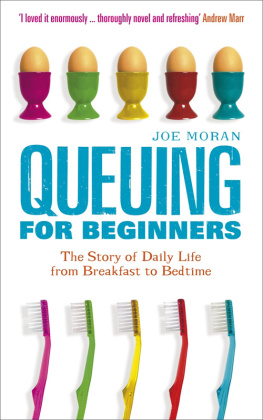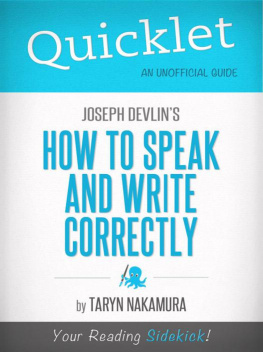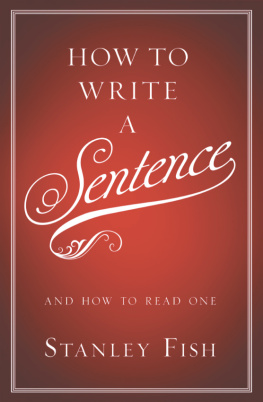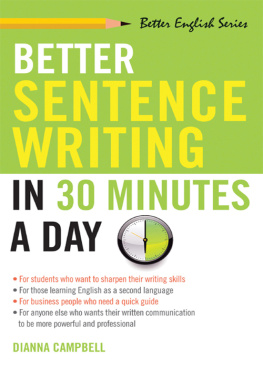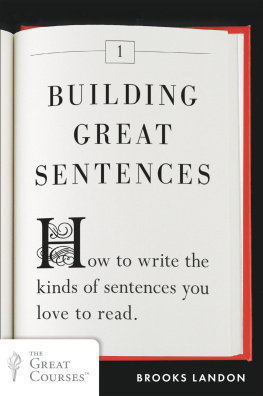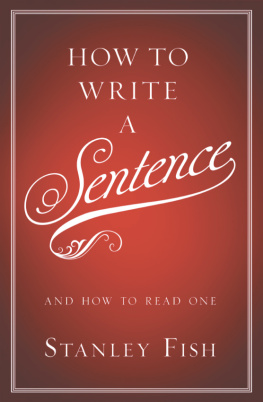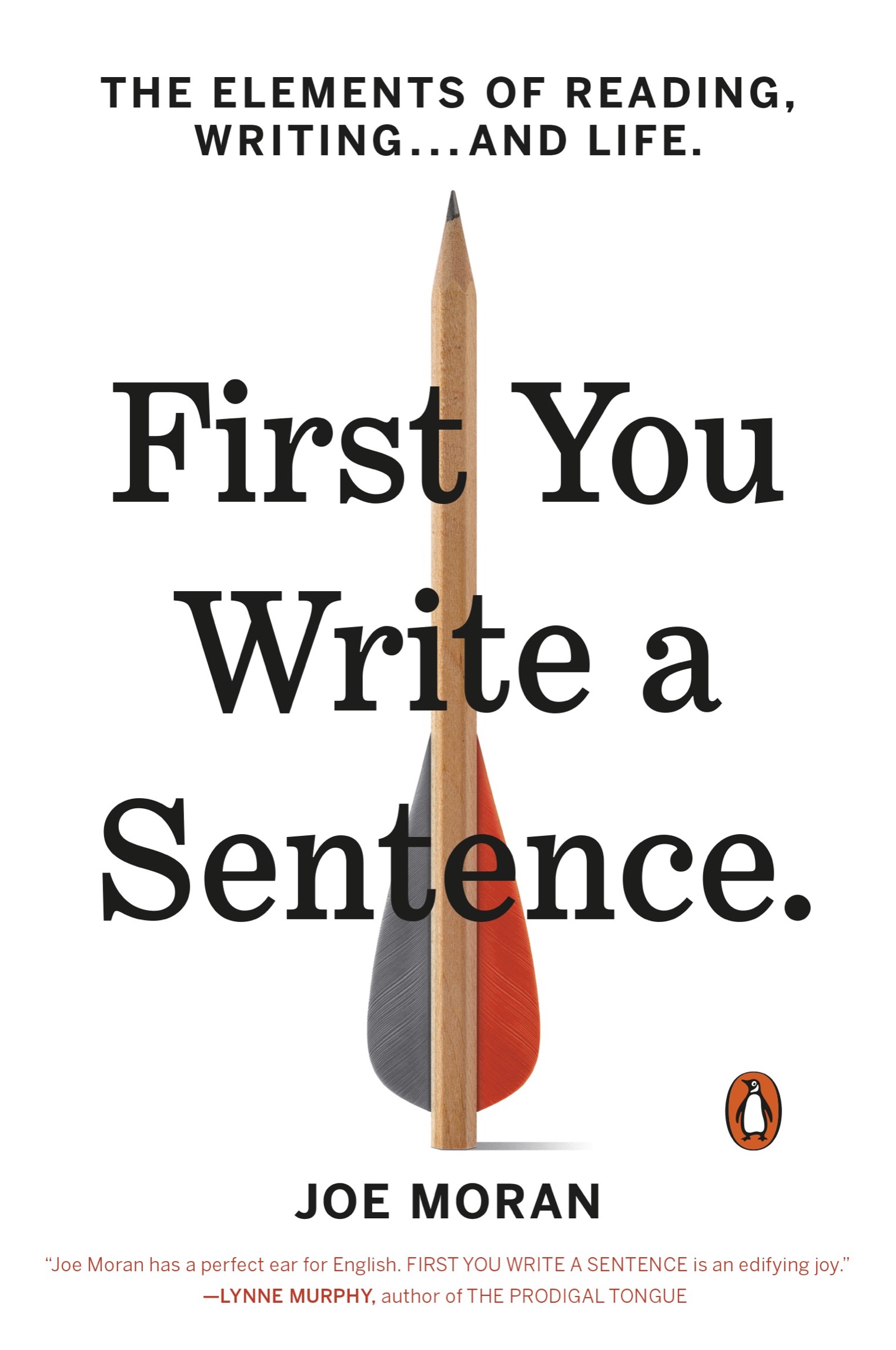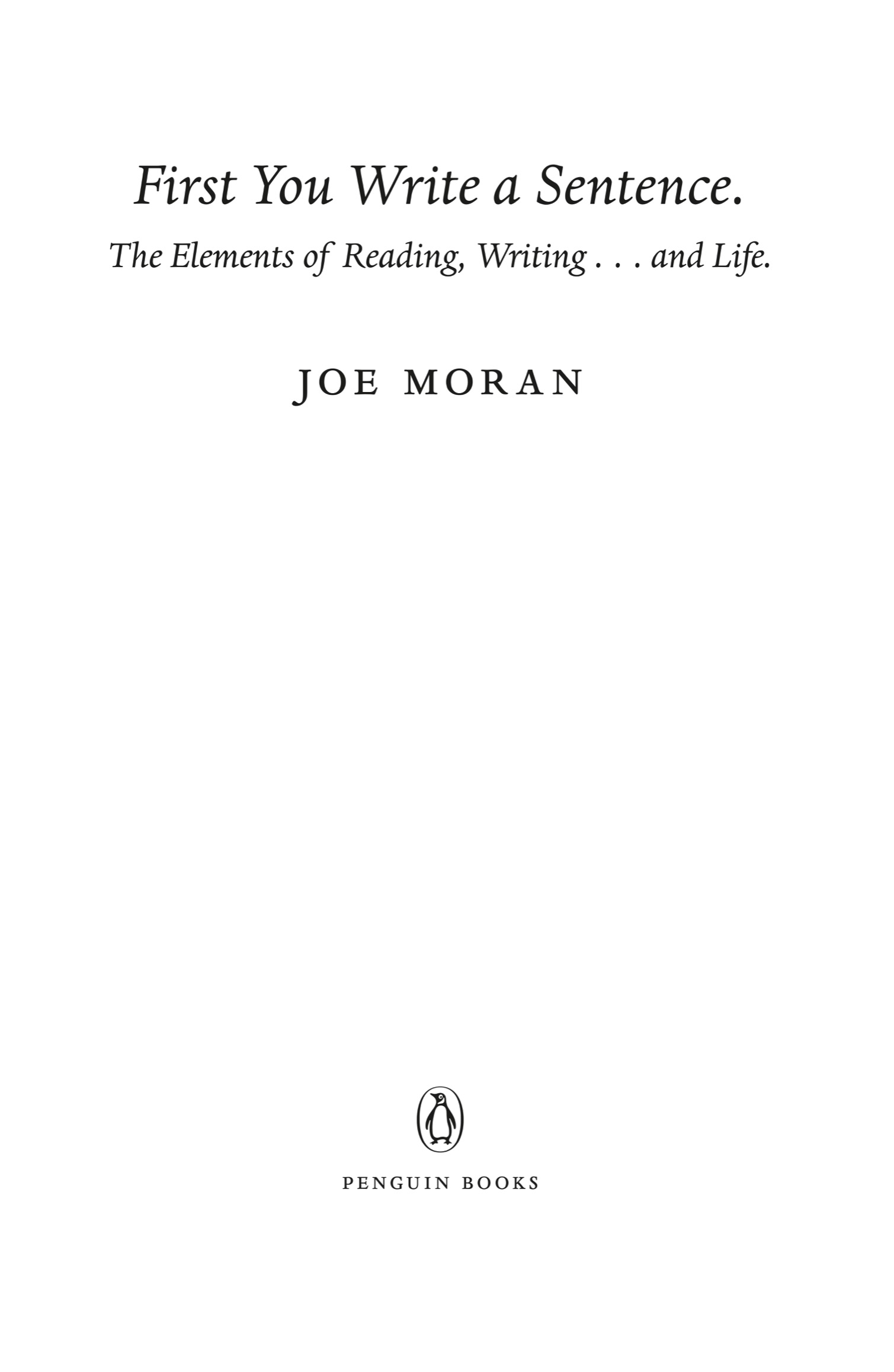Praise for First You Write a Sentence
Thoughtful reflections on how to write well... Moran is a thoroughly sane, thoughtful commentator.
The Guardian (Book of the Week)
Joe Moran is a wonderfully sharp writer, calm, precise, and quietly comical.... Morans own sentences are perfect advertisements for the aims they espouse.... He writes with a playful clarity that makes First You Write a Sentence a joy to read.
The Mail on Sunday (UK)
It takes chutzpah to write a book about writing sentences. Between every full stop lies the potential to fail by your own standards, as countless style guide writers have done before. But Joe Moran has a perfect ear for English. First You Write a Sentence is an edifying joy.
Lynne Murphy, author of The Prodigal Tongue: The Love-Hate Relationship Between American and British English
Thoughtful, engaging, and lively expos of the quirks and beauties of the full sentence... Its a style guide by stealth: when youve read it, you realize youve changed your attitude to writing (and reading).
John Simpson, former chief editor of the Oxford English Dictionary and author of The Word Detective
What a lovely thing this is: a book that delights in the sheer textural joy of good sentences. Joe Moran has written a book about writing that is itself a collection of sentences to inspire, divert, and console. Any writer should read it, if only to be reminded how crazily hard it is to write words in such a way that they can be deciphered in your absence.
Bee Wilson, author of Consider the Fork and First Bite
PENGUIN BOOKS
FIRST YOU WRITE A SENTENCE
Joe Moran is a professor of English and Cultural History at Liverpool John Moores University.
PENGUIN BOOKS
An imprint of Penguin Random House LLC
penguinrandomhouse.com
First published in Great Britain by Viking, an imprint of Penguin Random House UK 2018
Published in Penguin Books (USA) 2019
Copyright 2018 by Joe Moran
Penguin supports copyright. Copyright fuels creativity, encourages diverse voices, promotes free speech, and creates a vibrant culture. Thank you for buying an authorized edition of this book and for complying with copyright laws by not reproducing, scanning, or distributing any part of it in any form without permission. You are supporting writers and allowing Penguin to continue to publish books for every reader.
Permission to quote the work of Ian Hamilton Finlay courtesy of the Estate of Ian Hamilton Finlay; permission to quote the work of Robert Montgomery courtesy of Robert Montgomery; permission to quote the work of Martin Firrell courtesy of Martin Firrell (www.martinfirrell.com)
LIBRARY OF CONGRESS CATALOGING - IN - PUBLI CATION DATA
Names: Moran, Joe, 1970- author.
Title: First you write a sentence : the elements of reading, writing...and life / Joe Moran.
Description: [New York] : Penguin Books, 2019. | First published in Great Britain by Viking, an imprint of Penguin Random House UK, 2018Title page verso. | Includes bibliographical references and index. |
Identifiers: LCCN 2018058377 (print) | LCCN 2019007226 (ebook) | ISBN 9780525506157 (ebook) | ISBN 9780143134343 (trade pbk.)
Subjects: LCSH: English languageSentences. | Creative writing. | Creative writingSocial aspects.
Classification: LCC PE1441 (ebook) | LCC PE1441 .M665 2019 (print) | DDC 808/.042dc23
LC record available at https://lccn.loc.gov/2018058377
Version_1
Contents
Or why I wrote this book
Or why word order is (almost) everything
Or how to bring a sentence to life, but not too much
Or how to say wondrous things with plain words
Or how to write long and legato without running out of breath
Or how to join sentences together with invisible thread
Or why a sentence should be a gift to the world
For first you write a sentence,
And then you chop it small;
Then mix the bits, and sort them out
Just as they chance to fall:
The order of the phrases makes
No difference at all.
Lewis Carroll, Poeta Fit, Non Nascitur (A Poet is Made, Not Born), in Phantasmagoria and Other Poems (1869)
Lytton Strachey said to me: first I write one sentence: then I write another. Thats how I write. And so I go on. But I have a feeling writing ought to be like running through a field.
Max Beerbohm, quoted in Virginia Woolfs diary,
1 November 1938
1.
A Pedants Apology
Or why I wrote this book
First I write a sentence. I get a tickle of an idea for how the words might come together, like an angler feeling a tug on the rods line. Then I sound out the sentence in my head. Then I tap it on my keyboard, trying to recall its shape. Then I look at it and say it aloud, to see if it sings. Then I tweak, rejig, shave off a syllable, swap a word for a phrase or a phrase for a word. Then I sit it next to other sentences to see how it behaves in company. And then I delete it all and start again.
If there were a pie chart that divided up my time on earth, the colored slice that covers writing sentences would be the biggest, apart from the one that covers the thing everyone does: sleeping. I dont count how much writing I have done each day, but if I did I wouldnt count words, Id count sentences. Sentences are my core output, the little widgets I make in my workshop of words. It helps to think of it like this, as just cranking out a daily quota of sentences, instead of being a writer, which feels like a claim that will need to be stamped and approved. I write maybe three and a half thousand sentences a year. Is this too many, or not enough, or about right? I have no idea. I write one sentence, then another, and repeat until done. I dont know when done is.
Some writers claim to have sentences in their heads hollering to get out. Flaubert wrote that he was itching with them. These writers just seem to have a knack for putting words into right-seeming order, as if it were a skill as randomly allotted as being able to wiggle ones ears. Not me. But I can spot a good tune when I hear it. I know what a good sentence looks and sounds like, so that when I come across one in my own writing I have the good sense not to delete it but to try and replicate it. Having only minor gifts has its compensations. It has forced me to think hard about how words join up and why some sentences work better than others. A nightingale has no idea why such a bewitching noise emerges from its throat; a human nightingale impersonator must parse every note.
I may give more time to them than most people do, but we are all of us, of school age and older, in the sentences game. Sentences are our writing commons, the shared ground where every writer walks. A poet works with them, but so does the unsung author who came up with Items trapped in doors cause delays or Store in a cool, dry place. Every kind of writer writes in sentences. Even the most clueless or careless strew their writing with capital letters and full stops, in the hope that they will turn what lies between them into this universal currency. By learning to make sentences, we learn not just about writing but about everything. The sentence is where we make the briefest of senses out of this mad, beautiful, befuddling mess: life.

